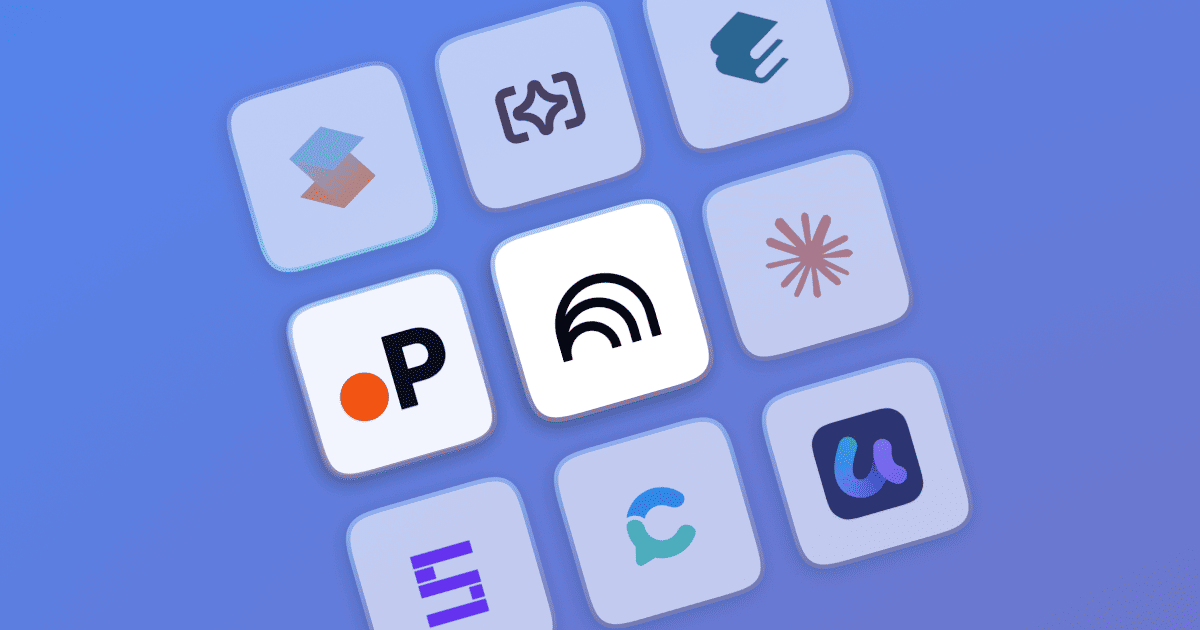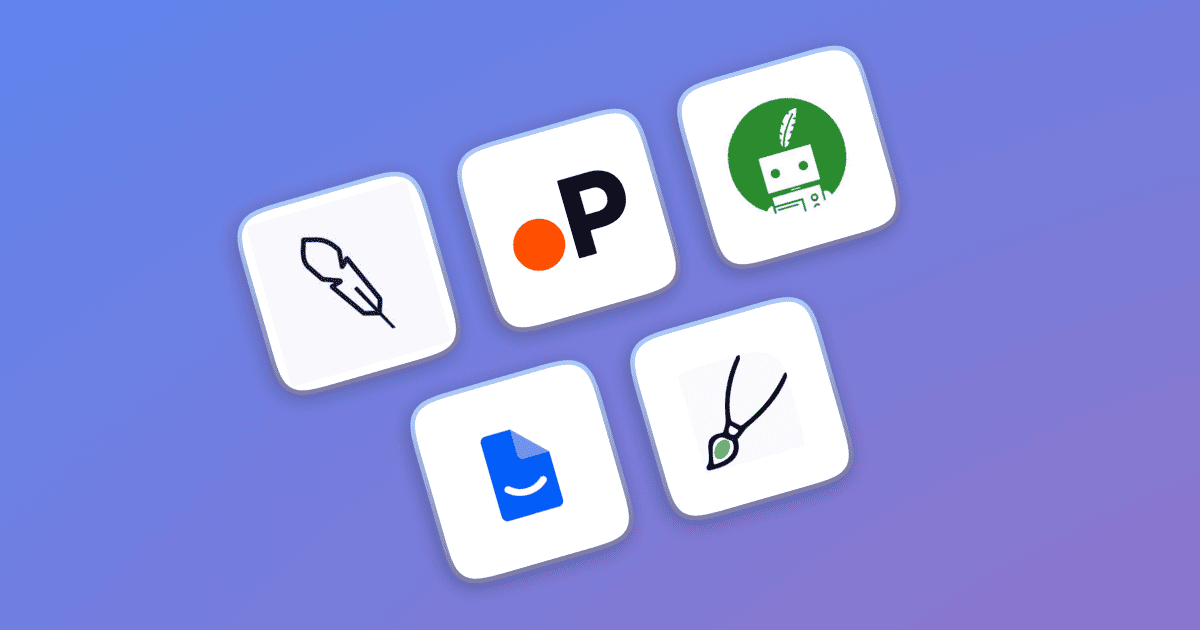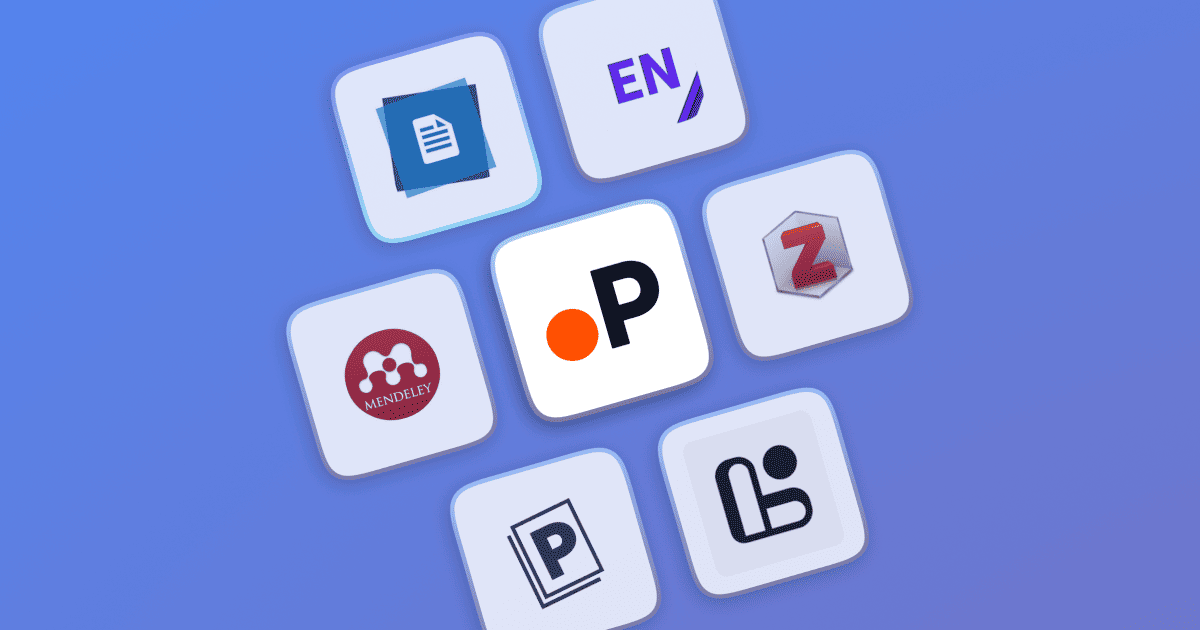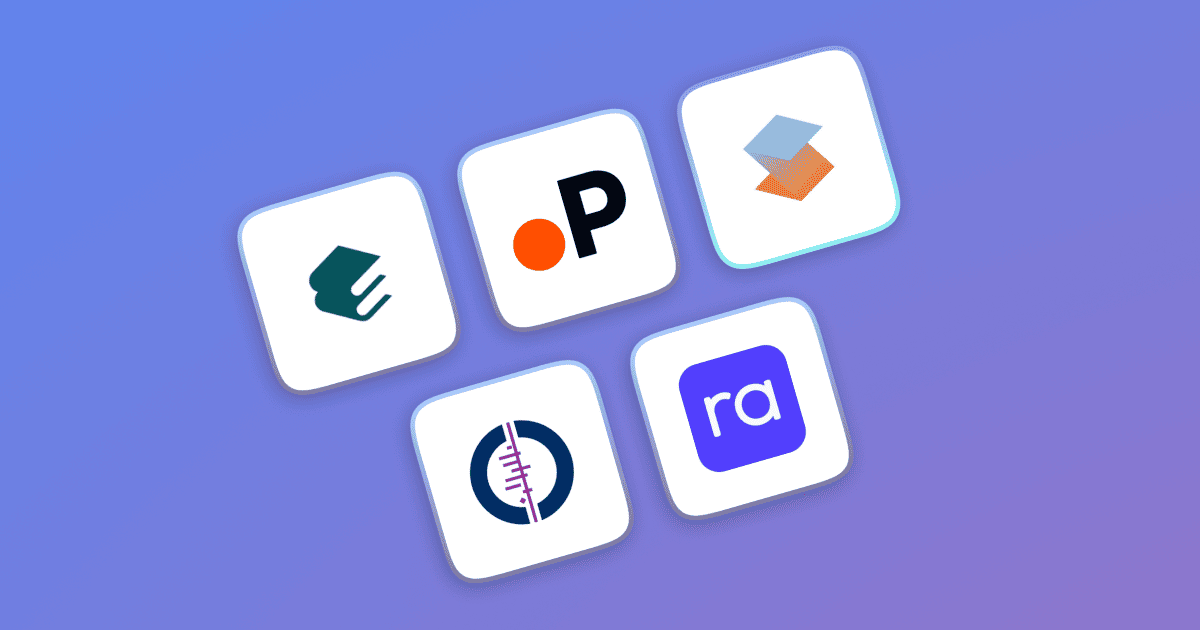Best AI Research Assistant Tools in 2025
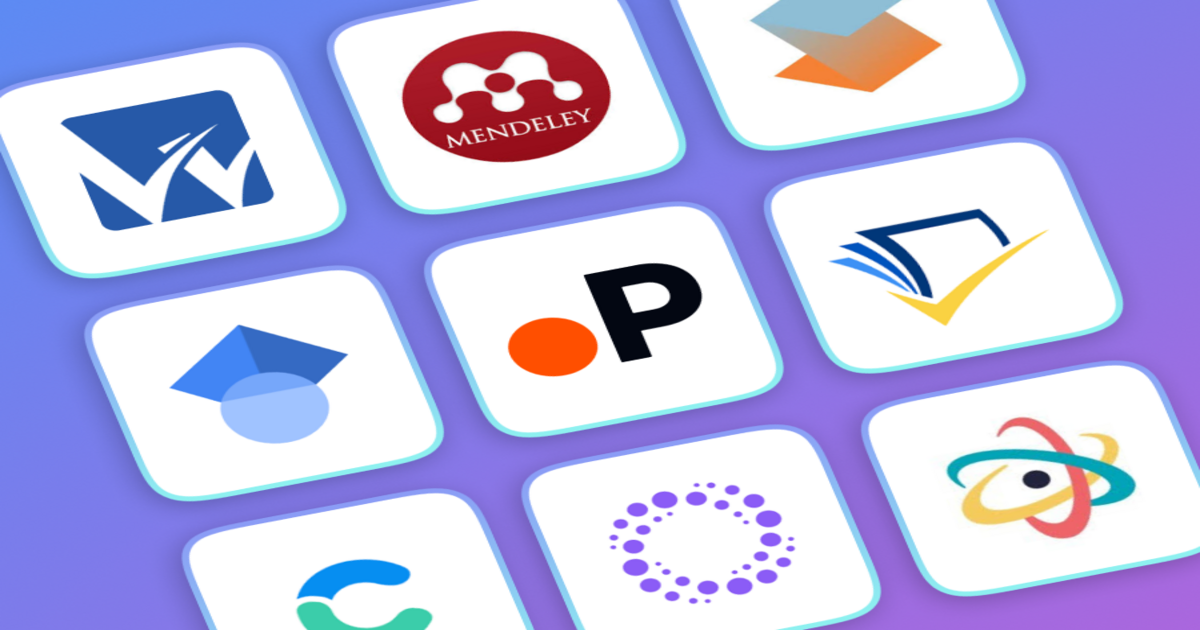
“AI is going to be the ultimate version of Google, it is not the research assistant we deserve but the one we need right now.”
AI-Powered research tools and AI language models are here and they are transforming academia. Now data scientists have turned their heads towards more interesting things before we humans are finally replaced for once and for all.
With AI, you as a student have the potential to transform your scientific, marketing, and all other types of research, citation, and information gathering into a much easier task. Having a powerful AI research assistant tool at your disposal gives you immense power, such as:
- You can quickly scan large data sets
- Enhance communication
- Robust fact-gathering from various resources
- Improvement in writing and better choice of words
But finding the right academic research tool is a bit challenging, and thankfully, we are here to solve that problem for you. We have come up with a list of top 10 AI research assistant tools that will save both your time and money while giving you more accurate results. In this list, you have both free and paid options available; let’s explore each one of these to see which one suits your requirements the best.
Best AI Research Assistant Tools
1. Paperguide
From the name, you can make out what this AI research tool does; it simplifies the complex concepts that are present in research papers with the help of its AI model. This makes it much quicker for you to comprehend the main concepts of the research paper and take out the crucial notes that can be used in your research paper. It may not come as a surprise but earlier this particular software was known as ChatwithPDF, the rebranding took place in 2024, and from there it became Paperguide.
To use this AI research tool, all you need to do is upload the research paper as a PDF or paste the URL, then highlight the confusing text and let the AI do its job. The AI will explain the meaning without taking you back and forth between countless websites. It may not seem like it does a lot, but trust us when you upload a research paper in it, and it starts explaining to you all the vital concepts in a much simpler language, you will definitely feel like you have a buddy who is reading out a paper for you.
Features:
- You can use it for simplifying explanations for all the complex concepts in academic papers.
- It is one of the most simple AI research assistant tools that you can find on the internet.
- You can also save all the research papers that you have uploaded for future references and citations.
- It gives you different levels of explanation, you can choose to explain it to 5 year olds, school graduates, university students and others.
- This AI tool also provides you with external links that help you to read more about those topics.
- The AI assistant tool also supports you in writing research papers by checking your grammatical errors and plagiarism, you can use the inbuilt paraphrasing and citation management that are part of the platform.
- Furthermore, the AI tool anticipates user needs via context-aware autocomplete.
Price: It starts at free where you get 10 AI generations each day; the paid version starts from $9 a month, and has unlimited AI generations along with 10GB of cloud storage space.
2. Powerdrill
If your research involves large, messy datasets and you're not a data expert, Powerdrill is the tool for you. This no-code AI assistant lets you upload raw spreadsheets and instantly transforms them into clean, well-structured analytical reports. It does data cleaning, trend detection, data visualization for you, and provide you with summaries and insights of your data.
Features:
- You can upload any dataset (CSV, Excel) to get a structured, editable analytical reports.
- Powerdrill detects missing values, inconsistent formats, and structural issues.
- It automatically generates relevant charts, highlights patterns, and identifies outliers.
- You can ask follow-up questions in the chatbox and get direct answers.
- If you need to make a presentation, Powerdrill can turn the report directly to a PowerPoint slide in one single click.
Price: The free plan includes 10 data analysis jobs, 1 AI-generated report, and 1 AI-powered presentation per month.
3. Consensus
Consensus makes the knowledge available on the internet accessible to you. It works as a search engine that is designed to scour through a number of research articles, papers, and even books for your scientific study. With this AI research assistant tool, you will be getting evidence-based answers at a much-accelerated pace, which ultimately leads to solving the problem of content overload.
Features:
- Consensus is an innovative tool that works like a barometer for agreements and disagreements within a group by simply asking questions like Yes/No.
- Use the inbuilt analyzer to quickly check the vast amount of research paper efficiently, which allows navigating through extensive datasets swiftly and with comprehensive control.
- It can provide scientifically verified results to your search queries, and the algorithm keeps on working to ensure accuracy and reliability in the information it delivers.
- The AI assistant tool recently got an update that integrates cutting-edge ChatGPT4 technology to enhance user experience.
Price: The free plan comes with 20 AI credits per month that can come in handy for pulling GPT-4 Summaries. The premium plan starts from $8.99.
4. Scispace
Scispace is designed to help users understand research papers better, by providing summaries, explanations, and even providing answers to the follow-up questions. The AI tool comes with an intuitive UI and has tons of powerful features which makes it a great assistant for people writing research papers.
Scispace is the one that revolutionized the way researchers interact with the academic texts that are part of research articles. Having this tool at your side will simplify complex concepts, and at the same time, it also streamline the literature review process.
Features:
- You can highlight texts, mathematical equations, and even tables that are part of different research papers from which you are taking inspiration.
- Furthermore, you can simply select the selection of the paper to receive clear and concise summaries of the highlighted paragraph.
- If you still have doubts regarding the topic, you can ask follow-up questions to have a deeper understanding and remove any lingering thoughts.
- There are preset questions available that you can use to navigate through extensive research papers in an efficient manner.
- It removes the need for manual note-taking and makes sure that all the details are easily available to you.
Price: In the free version, you are getting limited chats with papers and with PDFs. The paid version starts at $8.30.
5. Researcher. life
With this AI assistant tool for research, students can discover, access, read, listen, organize, and even share research from one of the fastest-growing repositories, which has over 250 million research articles and over 150 million peer-reviewed journal papers, along with 40 million open-access research papers that cover approximately 9.5 million topics across 32,000 journals. Researcher.
Life is one place where top aggregators and publishers come to curate reading feeds. You can even bookmark specific parts of the paper, auto-sync your library with reference managers and at the same time collaborate with peers via shareable reading lists.
Features:
- If you are a working individual and don’t have much time to read the entire research paper, you can listen to the research abstracts and even full-text articles in the English language.
- Furthermore, if English is not your secondary language, you can choose other languages in this tool to overcome the language barrier.
- With Ask R Discovery you get summarized answers with your citations and even links to the research paper from where the answer is extracted out.
- It also has generative AI that helps you in writing down the research paper.
Price: The membership is completely free, but if you have to do anything more than just find research papers, then you have to go premium, which costs $7.50 a month, and it is billed annually, semi-annually and finally quarterly.
6. Semantic Scholar
If you are new at writing research papers and reports you might have not heard the name of Semantic Scholar but stick around for a while and we are sure someone from a senior year or your professor will drop you a hint to use Semantic Scholar for your research.
It is a great AI assistant tool for individuals who are pursuing computer science, biomedical science, and neuroscience students. It takes advantage of natural language processing to trace out academic papers to find relevant content for researchers.
Features:
- It can identify the most critical parts of a paper, adding more value to it.
- You get to access over 200 million documents from numerous data sources and web crawls
- Create one-line summaries for every article
- Semantic readers will give you comprehension of scientific literature
- Refine search results for greater relevance and accuracy.
Price: Starts at free
7. Scholar
This is an article summarizer for your research papers, articles, reports, and even for people who are writing their first novels. It will help you keep up with the latest research while making sure that you have quick access to relevant documents. This AI research assistant tool breaks down the information and the data into different categories, which it extracts from various research papers.
From this AI research tool you also get a summary flashcard of any word or a PDF document, moreover, it includes open-access versions of cited sources. You can also use it to take out figures, tables, and images from articles to display information so it gets easier for you to accommodate them in your research.
Features:
- Automatically extract references from articles, research papers, and others.
- You can add a browser extension that connects you with open-access repositories
- A searchable database of summary cards.
- Offer direct links to the cited resources for quick accessibility of informative material.
- Highlights critical contributions to the topics you are searching for without a miss.
Price: Free and Scholarly plus is $4.99/ month.
8. Wordvice AI
Wordvice works more as your research paper writing assistant, and it is powered by one of the most up-to-date AI technologies. Using Wordvice AI, you get an all-in-one text editor that improves the overall quality of your written work, making it clearer and more precise regarding the topic that you have chosen. This AI research assistant tool is designed to focus more on academics and research writing, catering to all the writing needs of every student.
In this tool you also get an AI Proofreader that will fix all the grammatical errors like punctuation, style errors, and spelling fixes to make your research paper more impactful and streamlined. You can also take the advantage of a paraphrasing tool, and text summarizer to have originality and natural expressions that makes your research work authentic and plagiarism proof.
Features:
- It checks your grammatical mistakes and errors and enhances your overall style of writing.
- Features like Thesaurus allow you to diversify the word usage.
- Take assistance for writing in an academic format and adhere to the tonality that is required in your university.
- A plagiarism check is there to see if your content matches up with millions of other academic articles or not.
Price: Starts for free; premium plan is $9.95/ month.
9. Afforai
With Afforai, you can find new research papers easily by using natural language inputs that come with the Semantic Scholar mode feature. The Afforai database is made up of 200 million peer-reviewed research papers. It comes with a document retrieval mode; Semantic
Scholar mode is for individuals who want to back up their citations, and Google search mode is in which you type in a question to get an answer from relevant sources on the internet. In addition to this, you can also use other AI models like Azure GPT-4 Omni, Azure GPT-4, Claude 3.5 Sonnet, and other custom AI models.
Features:
- You get to talk to your research paper, upload it on the platform, and start asking various questions from it.
- With a free plan, you get up to 20 AI queries each day and 500 MBs of storage space.
- Finding a research paper is a pretty easy task
- GPT-4 and Claude hold some serious AI power that can be used to trace citations and research papers.
- Share files and folders with other team members so multiple individuals can collaborate on the same research.
- You can ask AI to explain tricky parts of a research paper and put up a sticky note on it.
Price: Starts for free; the student plan costs $4.99, and the professional plan is $9.99.
10. Knewton
Named after great scientist and inventor Newton, this AI research assistant tool is for graduate students and scholars who are looking to personalize their learning experience. Using this AI tool, you get to generate educational content that matches your learning style and requirements.
In this AI tool, you are going to learn interactively from videos, puzzles, infographics, and other means. It also analyzes your performance and how you study to come up with your strong and weak areas in real time.
Features:
- The AI tool changes the educational content to your learning style.
- There are tons of courses available in various subjects that allow you to learn a topic in a quick fashion.
- Here you also get a chat option for student interaction, each student gets a different question from the AI to keep them occupied.
Pricing: $10.95 + taxes a month.
11. Julius AI
If you want to make your data more visually appealing and easy to understand then Julius AI is your best bet. It is one of the most crucial AI tools that brings out the power of advanced data analytics and visualization to everyone no matter if they have any experience in the technical field or not.
From this AI research assistant tool, you will be interacting with your data files with simple natural language, just like you now used to chat with the AI-powered chatbot. For this feature to work, you first need to upload the content on the platform.
Don’t worry. You can upload documents in any format. Still it will still be able to extract vital stats using regression modeling, projections, statistical analysis, and others. From complex 3D visualizations to data-filled geographic maps, you can visualize anything from your data using this AI assistant tool.
Features:
- Amazing conversational interface, as a result, it is easier for non-technical users to navigate deep in research papers.
- Access to some of the latest AI technologies and natural language models like GPT-4, Claude, and LLaMA.
- Internet connectivity allows you to search the world wide web using AI tools.
Pricing: Starts at $20 a month, which gives you 250 messages and includes all core features.
12. Connected Papers
This is a unique AI research tool that gives the power to visualize different relationships between multiple academic papers. The representation of relationships was created in the form of graphs, thus making it easier for you to find out the influential work in addition to all the new research paths that you need to follow when writing your own research paper.
With the built-in tool of visual graph creation on co-citations and shared references, Connected Papers gives its users the ability to comprehensively explore a particular topic’s landscape. With this AI tool, you get to identify seminal works and understand the development of ideas over time, and you are able to dig deep into unsighted research papers that are groundbreaking and are less used in citations.
Features:
- Visual graph representation of the relationship between multiple papers based on shared references and co-citations.
- Explore research papers that are less cited but filled up with tons of information.
- The interface is quite interactive and easy to understand, making it a great tool for students who are writing a research paper for the very first time.
Price: Starts at free with 5 graphs per month; if you want more, you can go with the Academic plan for $3 a month, which gives unlimited graphs.
13. Mendeley
If you want to have an AI tool that can quickly help you reference research papers, then Mendeley is the perfect choice for you. It is used for organizing PDFs, crafting bibliographies, and annotating scholarly documents with accuracy. It also comes with a collaboration feature in which team members who are working on the same research paper can work together on this platform.
Here, you will find all the standard academic procedures that you need to create an in-depth research paper.
Features:
- It offers a citation style for journals and also boosts your citation accuracy.
- The AI tool comes with a web importer plugin that lets you import every single document you require for your research paper.
- Search all the annotations and notes in research papers in PDF format with ease.
Price: The basic software is free to use.
14. Elicit
Last AI research tool that we have is Elicit which is developed by Ought and it utilizes language models using GPT-3 in order to automate parts of research’s workflows. You ask Elicit a question and the answer it produces has relevant papers along with their summaries of information.
Furthermore, the powerful AI model backing this platform can even find research papers for you without you having to provide exact keywords for them; this is done by taking assistance from semantic similarity to find research papers available on the internet that have some relevance to the questions you have asked. The user interface of the application is so intuitive and designed with so much thought that it will take you only the smallest amount of time to master it.
Features:
- It can find research papers based on semantic similarities, as well as it rates and evaluates a research paper based on multiple metrics to see its relevance to your question.
- You get to sort out research papers that the tool has fetched for you based on the published dates, keywords, and other factors.
- It comes with other features that are beyond literature review including user-created tasks which is something unique for this type of AI research tool.
Price: It is free to use; you can still make donations if you want.
How to Choose an AI Research Assistant?
Here are a few of the things that you need to check or the tasks that your AI research assistant needs to complete in order to put up half the effort in your research.
1. Manage Tasks
Your AI assistant should be able to handle tasks such as setting up reminders, keeping track of to-do lists, and basically managing all necessary tasks that you will be performing on a regular basis when you are doing research.
2. Quick Info Retrieval
The AI assistant has to be quick enough to provide answers to your questions, such as giving you insights on certain data that is available both online and uploaded by you on the platform. Furthermore, the AI assistant should be able to draft out customized citations and come up with useful online links that contain information similar to your research topic.
3. UI Is User-focused
The best of the software or programs are the ones that are easy to navigate and intuitive at the same time. Even if you are not tech-savvy, it should get the job done for you; you should not feel that the AI research tool is too complicated to use in the first place.
4. Seamless Integration
Your AI research tool should be compatible enough to seamlessly connect with other software that you have been using. It can work on multiple devices, and operating systems as well without showcasing any form of lags or errors.
5. Secure
One of the last things that you need from software is a breach of your privacy. Your research paper has to be secure at all times, from start to finish. Your research paper holds sensitive data, and you might even want to use it to highlight your immense knowledge in that specific field. As a result, your AI research tool needs to be as secure as a bank’s gold vault.
Best Practices for Using an AI Research Assistant
Here are 3 best practices that can elevate your experience of using AI research assistants while you are still maintaining scientific rigor and keeping the integrity of research intact.
1. Leverage Semantics
With the help of academic search engine capabilities, you can move past the usage of keyword searches. It will help you explore related concepts to your research when the exact terms do not match up.
2. Use of Citation Network Analysis
You can easily chalk out the evolution of ideas by making relationships between various citations that you will be using. In addition to this, with the help of AI research tools you get to track down how the concepts you have mentioned are developing across different fields.
3. Content Organizing
With the usage of proper AI research tools, you can even make theme-based research collections that use AI-powered categorization and can also deploy dynamic research maps. Here, you can tag papers based on multiple categories that are relevant to your research.
Wrapping Up
These were the top 10 AI research assistant tools that will help you write a research paper efficiently and quickly. If you have to ask us which one is the best among these, then we have to go with Elicit; it gets the job done for you, and that too at no cost.
So, after reading the list, we want you to first check out Elicit, and after using it, if you are still not satisfied, then start exploring the rest of the options that we have provided. Let us know which one is your favorite AI research assistant tool that made your PhD thesis and reporting much easier in the comment section below.


